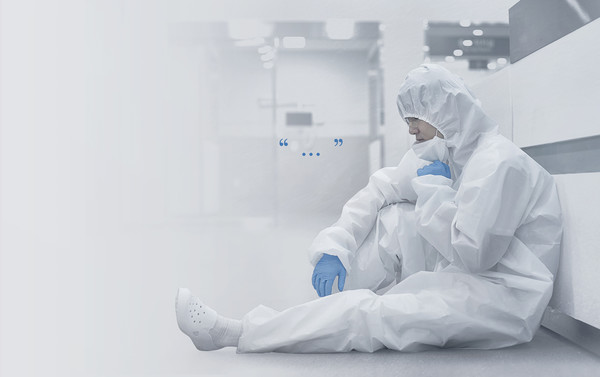Hospital managers are finding it more difficult to secure a medical workforce than increasing sickbeds to cope with resurging Covid-19 patients these days.
The government has set about to retain medical workers by issuing a “general mobilization order.” However, an increasing number of nurses and other care providers are leaving the field, saying, “We can’t stand it any longer,”

Mass desertions mainly occur at medical institutions that expand sickbeds for Covid-19 patients. For instance, a hospital in Seoul has recently emptied general wards, only to see some nurses offer to leave their job.
“As many as four to five nurses express intentions to resign a day. I am afraid this would become the month when the largest number of nurses quit,” a hospital official said. “The management has proposed to make additional financial rewards, but the leaving nurses say they can’t do it anymore because it’s too hard.”
The manpower shortage has led to an increased work burden for the remaining staff. At a meeting to hear the voices of nurses at medical fields, co-organized by the Medical Solidarity Headquarters and the Society of Acting Nurses to Realize Health Rights on Tuesday, “testimonies” poured out complaining about the high-intensity working environment at the Covid-19 wards.
Kim Kyong-oh, a nurse at SMG-SNU Boramae Medical Center, said one nurse cares for nine patients at the hospital’s Covid-19 ward. “At least one doctor and more than four nurses are needed to change the positions of severely ill patients. However, we have to do it with just three nurses and one doctor,” she said.
Hospitals that have failed to secure a medical workforce cut down on general treatment.
The Seoul National University Hospital has managed to secure manpower and sickbeds by putting off non-emergency operations, such as spinal and joint surgeries, thus reducing the demand for intensive care units.
The Chungbuk National University Hospital plans to close two general wards to replenish the insufficient medical workforce.
The National Medical Center, which decided to vacate all beds at general wards to treat Covid-19 patients, called for the “government’s positive support” as far as the medical workforce is concerned, indicating that the hospital cannot solve the problem on its own.
However, the government has no particular solutions, either. Instead, officials said it would be best to reallocate medical workers who cared for other patients to the Covid-19 treatment, describing it as “manpower reorganization.”
The Central Disaster Management Headquarters (CDMH) is helping hospitals by operating a separate workforce pool. There are about 5,000 nurses in the pool. Still, some of them are not experienced enough to care for severely ill patients at the ICUs,” said Park Hyang, head of the Overall Quarantine Team at CDMH, during a regular briefing on Tuesday. “We are doing our best to supplement medical institutions, which, however, are finding it difficult to cope with the manpower problem.
Park acknowledged that hospitals had managed to fill the void by depleting medical workers at ICUs.
‘However, if hospitals secure additional Covid-19 wards, nurses at general wards will have to move to the latter,” she said. “Hospitals will soon face a situation where they must postpone some non-urgent surgeries.”
Park added that otherwise, hospitals could not reallocate the workforce to Covid-19 wards. “Strictly speaking, it is less the replenishment of workforce than the reorganization of manpower.”
The official asked the public to put off non-emergency treatment for the time being to prevent setbacks in general treatment.
“If the nation runs into a situation where it must secure additional Covid-19 wards, the public will feel lots of inconveniences,” Park said. “The government hopes people will endure some inconvenience to secure additional beds for critically ill Covid-19 patients.”
She reiterated the need for the people to take part in a “campaign to postpone the use of emergency rooms or non-urgent treatment for the time being.”

